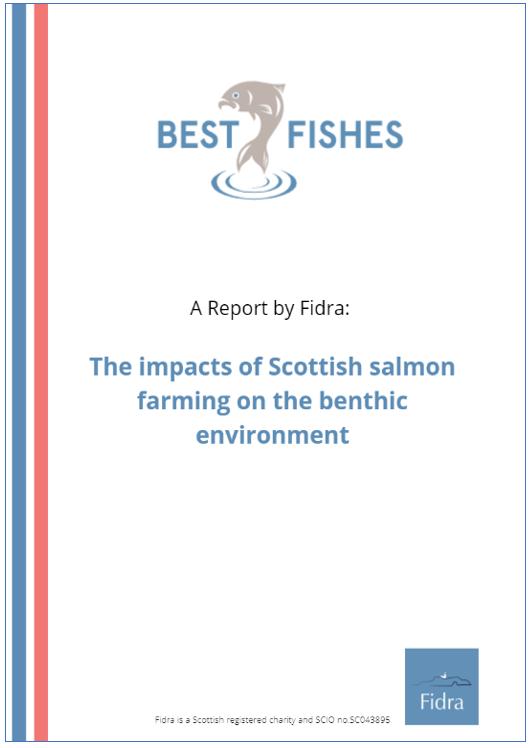Fidra’s benthic work
Earlier this year we published a blog about why the benthos (loch or sea bed) is a crucial part of the marine environment: Why bother about benthic surveys?
This blog explained the importance of benthic surveys and how they can provide information about the environmental quality of the loch or seabed supporting salmon farms all around Scotland. As an environmental charity, Fidra value the results of these surveys being published online via Scotland’s Environment website.
Over the last few months, Fidra have continued this line of investigation by looking closely at the benthic survey results of farms that were deemed non-compliant by the regulatory body for the industry, the Scottish Environmental Protection Agency (SEPA), asking specific questions about the environmental performance and sustainability of specific farms.
Fidra are pleased to be able to release our report: The impacts of Scottish salmon farming on the benthic environment. Click link to download.

This report summarises our findings in regard to two lists of salmon farms:
- All those that one UK retailer sources from and are also all owned by the same supplier.
- All farms that were deemed non-compliant by SEPA’s Compliance Assessment Scheme (CAS) due to their poor benthic quality.
Recommendations
From looking at the data and information presented in this report, Fidra offer 8 recommendations to industry, retailers, government, and the regulating bodies. They are as follows:
In light of benthic degradation:
- A clear limit of 3 consecutive failed or non-compliant assessments needs to be set after which a fallow period or site closure ought to be enforced.
- In areas where several poorly performing salmon farms are closely situated, further aquaculture development should cease unless, and until, performance of the farms can be improved and sustained to limit the damage to that area’s benthic environment.
- No additional salmon farms should be granted in Scotland’s Marine Protected Areas (MPAs) and consideration should be given to moving those that are presently in MPAs.
Regarding the availability of information and transparency:
- Benthic survey reports should be made available online, including subsequent requirements set by SEPA such as biomass reduction, or actions taken by producers.
- A ‘Borderline’ benthic survey result produced automatically by assumption and not due to actual survey results should not equate to a ‘Good’ CAS standard, if preceded by ‘Unsatisfactory’ or ‘Not assessed’ results. CAS assessment should then not be completed until a benthic survey has been undertaken.
On enforcement:
- Stricter enforcement ought to be in place to ensure farms genuinely limit their biomass after an ‘Unsatisfactory’ benthic survey result.
- Farms that receive an ‘Unsatisfactory’ result should have more frequent benthic surveys conducted.
- Monitoring should be established to indicate how salmon farm waste interacts with other pollution streams.
Fidra are proud to work with a variety of stakeholders and look forward to being able to work collaboratively to implement these recommendations. Learn more about the environmental impacts of salmon farming on our website, here.
Tags: benthic surveys, benthos, environmental impacts, Scottish salmon farming

